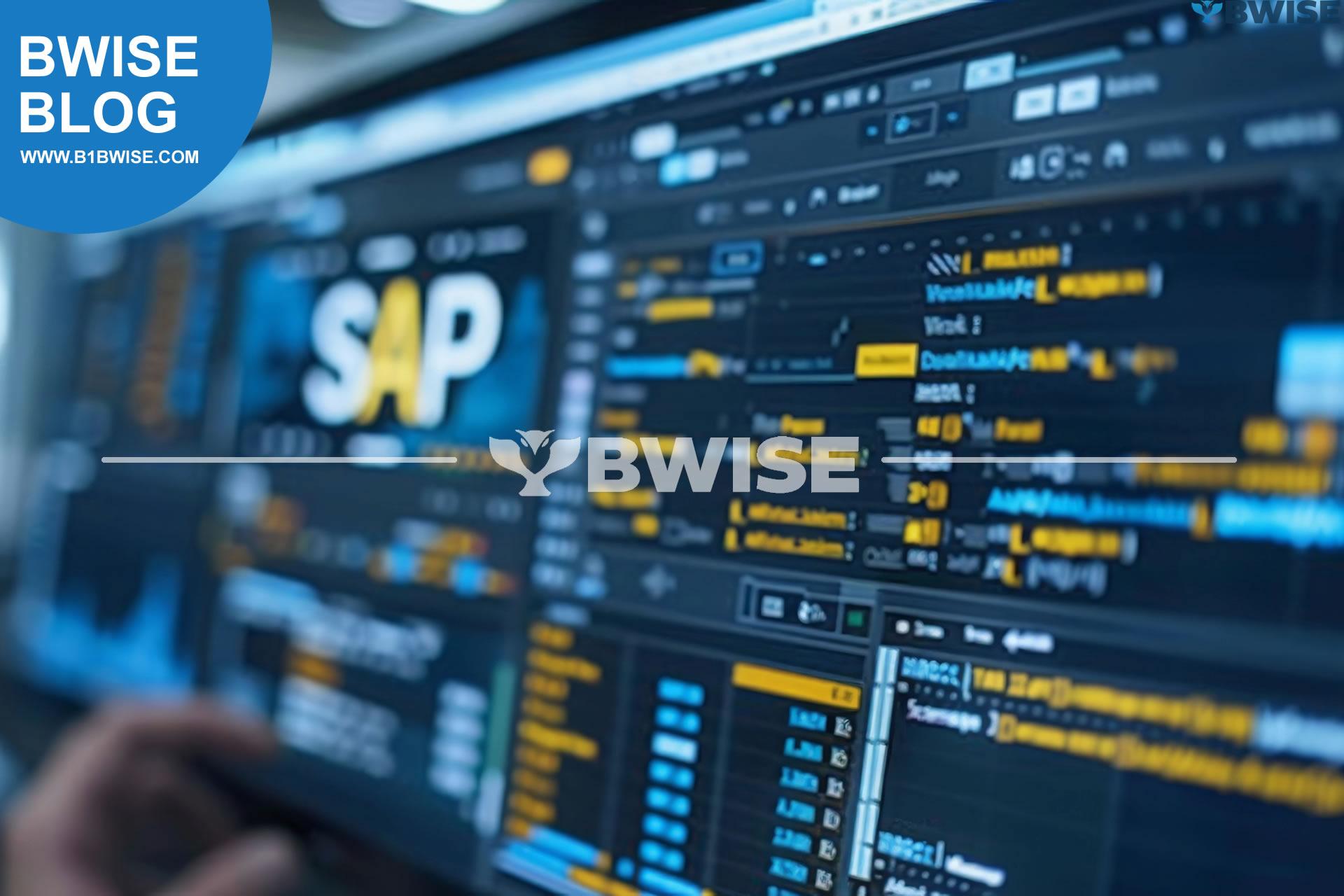
In today’s fast-paced and highly competitive business landscape, efficiency is paramount. Regardless of size or industry, every organization strives to optimize its operations to stay ahead of the curve. Enterprise Resource Planning (ERP) systems have emerged as indispensable tools for achieving this goal. This article delves into ERP systems’ functionalities, benefits, and significance in modern business environments.
What is an ERP System?
An ERP system is a comprehensive suite of integrated software applications designed to automate and streamline core business processes, such as finance, human resources, supply chain management, manufacturing, and customer relationship management. These systems provide a centralized platform that allows organizations to collect, store, manage, and interpret data from various departments in real-time.
Functionalities of ERP Systems
Financial Management: ERP systems offer modules for managing accounting transactions, financial reporting, budgeting, and cash flow management, providing organizations with accurate insights into their financial health.
Human Resources Management: From recruitment and payroll processing to performance evaluation and employee development, ERP systems facilitate efficient management of HR activities, ensuring workforce optimization and compliance with labor regulations.
Supply Chain Management: ERP systems help streamline procurement, inventory management, order fulfillment, and logistics operations, enabling organizations to optimize their supply chain processes and reduce costs.
Manufacturing: ERP systems provide tools for planning, scheduling, and controlling manufacturing processes, optimizing resource utilization, reducing lead times, and ensuring product quality and consistency.
Customer Relationship Management (CRM): By integrating CRM functionalities, ERP systems enable organizations to manage customer interactions, track sales opportunities, and analyze customer data to enhance marketing, sales, and customer service efforts.
Benefits of ERP Systems
Improved Efficiency: ERP systems automate repetitive tasks, eliminate manual data entry errors, and provide real-time access to information, enabling employees to work more efficiently and make informed decisions.
Enhanced Collaboration: ERP systems facilitate collaboration and communication across the organization by providing a centralized database accessible to all departments, fostering better coordination and goal alignment.
Data Visibility and Insights: ERP systems offer comprehensive reporting and analytics capabilities, allowing organizations to gain deeper insights into their operations, identify trends, and forecast future performance.
Cost Reduction: ERP systems help organizations lower operating costs and improve profitability by streamlining processes, optimizing resource utilization, and reducing manual labor.
Scalability and Flexibility: ERP systems are scalable solutions that can adapt to businesses’ evolving needs, whether expanding operations, entering new markets, or undergoing organizational changes.
Significance in Modern Business
Enterprise Resource Planning (ERP) systems are vital in streamlining operations, enhancing efficiency, and facilitating data-driven decision-making in modern business management. Among the array of ERP solutions available, SAP stands out as a global leader, offering a comprehensive suite of modules and features designed to address diverse business needs. However, implementing SAP or any ERP system is challenging.
In today’s digital age, where data is king and competition is fierce, ERP systems have become indispensable for businesses seeking sustainable growth and competitive advantage. By integrating disparate processes and providing a unified view of operations, ERP systems enable organizations to operate more efficiently, make data-driven decisions, and respond quickly to changing market dynamics.

Understanding ERP Implementation Challenges
- Choosing the Right Vendor Solution
Selecting the appropriate ERP system for your business is vital to a successful implementation. With numerous vendors and systems available, the decision-making process can be daunting. Each system has unique functionalities and features, requiring thorough research and careful consideration to ensure alignment with business requirements.
- Project Planning
Underestimating the time, budget, and resources required for ERP implementation is a common pitfall. Effective project planning is crucial to defining clear goals, establishing realistic timelines, and appropriately allocating resources. A well-defined implementation plan mitigates the risk of exceeding budget constraints and project delays.
- Data Quality
Data integrity is critical for ERP systems to function optimally. However, migrating legacy data to a new ERP system poses challenges, as outdated or inaccurate data may compromise system performance. Organizations must prioritize data cleansing and validation to ensure the accuracy and reliability of information within the ERP environment.
- Technical Requirements
Ensuring the technical infrastructure meets the ERP system’s demands is essential for seamless implementation. Upgrading servers, hardware, and network infrastructure may be necessary to support the robust capabilities of modern ERP solutions. Adequate bandwidth, storage capacity, and security measures are imperative to prevent performance issues and ensure system stability.
- Resistance to Change
Employee resistance is a significant barrier to ERP implementation success. Fear of job displacement, loss of control, and unfamiliarity with new processes often hinder user adoption. Changing management strategies, comprehensive training programs, and proactive communication are essential to ease resistance and foster a culture of acceptance and collaboration.
- Overall Cost
ERP implementation projects frequently exceed budget expectations due to underestimated costs and unforeseen expenses. Organizations must conduct thorough cost analysis, including data migration, training, and ongoing maintenance, to develop realistic budgets and mitigate the risk of cost overruns.
- Data Integration
Efficient data migration from legacy systems to the new ERP environment is vital for uninterrupted business operations. Due to the volume, complexity, and assortment of data sources, challenges may arise. Rigorous planning, data mapping, and validation processes are essential to ensure seamless data integration and minimize disruptions during the transition phase.
Strategies for Successful ERP Implementation
- Comprehensive Planning and Requirements Analysis
Conduct a thorough analysis of business processes, requirements, and objectives to update ERP selection and implementation strategies. Define clear project goals, timelines, and resource requirements to guide the implementation process effectively.
- Vendor Selection and Collaboration
Engage with reputable ERP vendors and consultants to identify the most suitable solution for your business needs. Collaborate closely with vendors to leverage their system configuration, customization, and training expertise.
- Data Quality Management
Prioritize data cleansing, validation, and migration to ensure the integrity and accuracy of information within the ERP system. Develop robust data governance policies and procedures to maintain data quality throughout the implementation lifecycle.
- Change Management and User Training
Proactively address employee resistance to change through effective change management strategies and comprehensive training programs.
- Scalable Infrastructure and Technical Support
Invest in scalable infrastructure and technical resources to support the ERP system’s evolving needs. Collaborate with IT professionals to ensure optimal system performance, security, and reliability.
- Continuous Improvement and Optimization
Implement a culture of continuous improvement to refine ERP workflows, enhance system functionality, and maximize ROI. Regularly assess system performance, user feedback, and business objectives to identify opportunities for optimization and refinement.
Conclusion
While ERP implementation presents formidable challenges, proactive planning, strategic collaboration, and diligent execution are crucial to overcoming these obstacles and unlocking ERP systems’ full potential. By addressing common implementation challenges with tailored strategies and solutions, businesses can streamline operations, drive efficiency, and achieve sustainable growth.
For businesses seeking comprehensive distribution solutions integrated with SAP Business One, BWISE Solutions specializes in providing end-to-end, complete distribution solutions by integrating SAP Business One with the WISE Warehouse Management System (WMS). With SAP implementation and warehouse management expertise, BWISE Solutions empowers businesses to optimize operations, enhance visibility, and drive business success in today’s dynamic marketplace.
